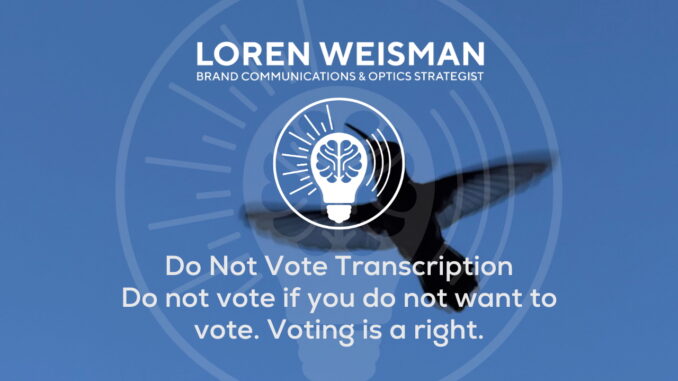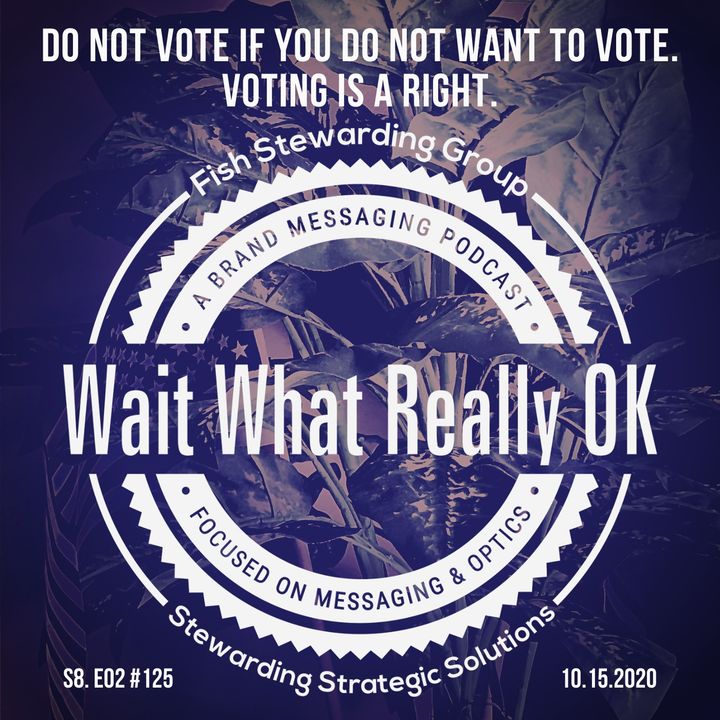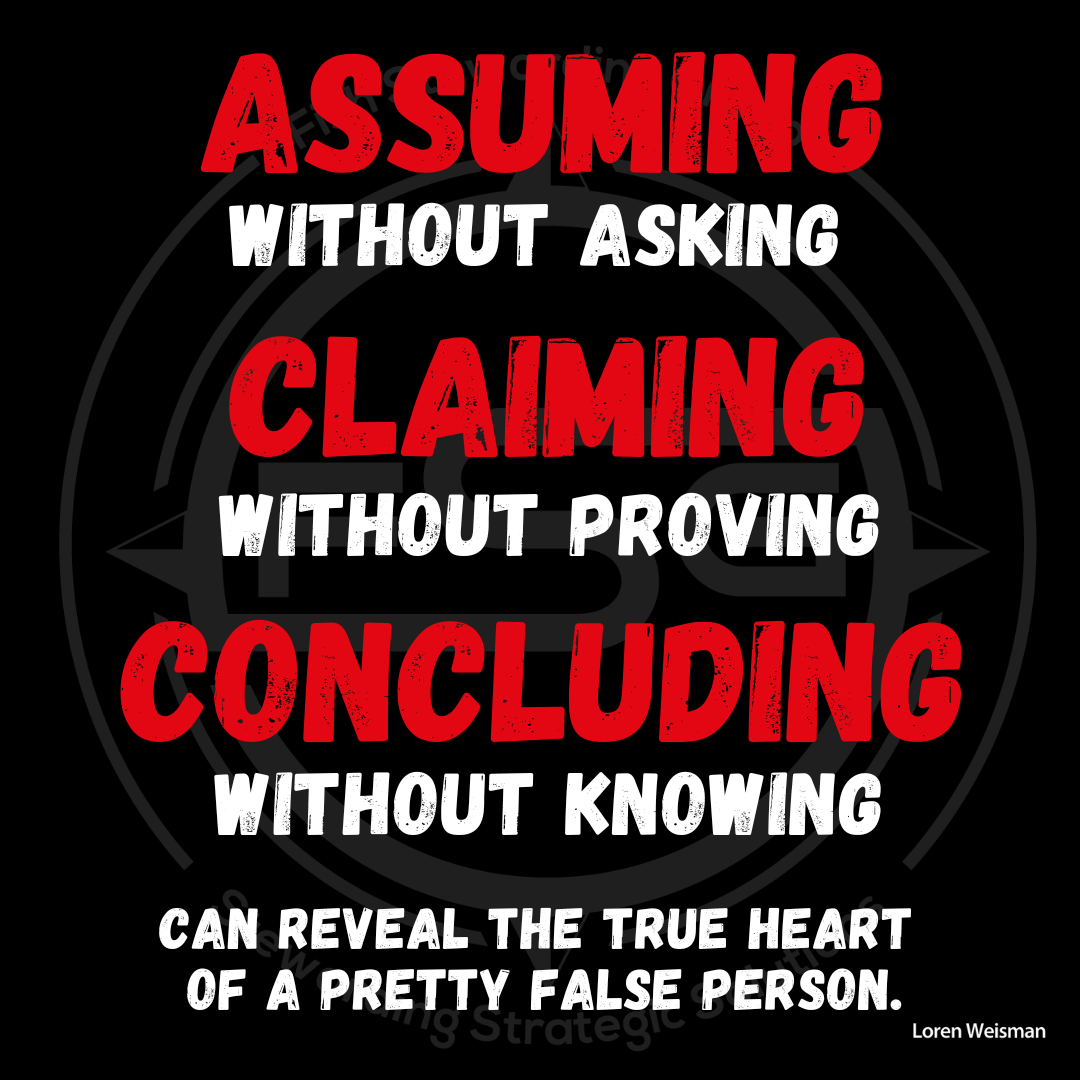
Do Not Vote Transcription
Do not vote if you do not want to vote. Voting is a right.
 Released on October, 15th, 2020
Released on October, 15th, 2020
🎙️ Tune In:
Listen to this Wait What Really Ok Podcast Episode
Do not vote if you do not want to vote. Voting is a right.
on
Spotify
Apple Podcasts
Pandora
Amazon Music
Spreaker
YouTube
and other platforms.
Do Not Vote Transcription
Song: Wait, What? Really? Really? OK with your host, Loren Weisman. This is a fully licensed theme song for the show about stuff that makes you say, Wait, What Really Okay. Hi, this is Loren Weisman. This is the brand messaging podcast. Wait What Really OK.
The title of this podcast was not something I tried to get you to click through. This is not clickbait. The name of this podcast is do not vote. If you do not want to vote and voting is a right, this is going to be a brief message. And I invite you, if you’ve listened this far, before making judgments, before preparing a counterattack, or before getting angry, to just have a listen to a view. It may not be your view. It isn’t right, it isn’t wrong. It’s a view, it’s an opinion. I’m not trying to hurt anybody. I’m not trying to make this a Conservative or a Democrat or a Libertarian or an independent style podcast.
It’s just a thought. And again, referencing. Because this is a brand messaging podcast, the messaging that we have going on out there, and not just with the election that’s coming up. Because when this podcast comes up, we’re gonna be about 20 days out from the 2020 election, but something that’s shown up in a number of presidential elections and a number of midterm elections and elections as a whole. Now that I feel like I got the legal part out, I want to share my view. The word rights. Rights are defined or a definition that I have here. Rights are legal, social or ethical principles of freedom or entitlement. That is, rights are the fundamental normative rules about what is allowed of people or owed to people according to some legal system, social convention or ethical theory.
Now, in that we as Americans have a right to vote, that is our right. It is not our responsibility. That’s where I see that a lot of issues have had that have happened over many years in people being excited, in people saying, you’ve got to vote, it’s your responsibility. I woke up this morning, one of the first things I saw was it is absolutely unacceptable if you don’t vote. Another post a few hours later. If you’re not voting, I don’t want to know you. Where is this inviting people? Where is this engaging people? There’s a toxicity and it’s gone on for a number of elections. There are a lot of people that don’t vote. They choose not to. They have a right to, but it doesn’t mean that they are responsible to.
It is not a law. It is not a. You have to come in and make this decision. Now from where I stand, I would love everyone to vote. I would love everyone to register to vote in time and, and early so that the issues that come up with these late minute registrations which they bother me, it’s people getting out there saying this isn’t right when they’ve had months on end. But that’s another story. That’s another thing. And yes, there are plenty of problems in our system, but still one of the biggest problems I see is in the messaging inside of that system that is pushing a force that is attacking people, calling people out, shaming people because they choose not to vote, they choose not to be involved. Now flip it around.
Do Not Vote Transcription Continued:
Yes, what I mentioned before, I would love it if people were involved. I would love it if they looked up their candidates, if they looked up from the most local elections to the presidential, if they looked up and vetted the material, not just reading the headlines, not just reading, you know, the above the fold, but going in and making an educated decision, educated ability to speak today in that I would like that. But that’s my opinion. It’s not my place to tell someone, you need to know more about Biden and Trump and the Senate and the House and all of these issues. That is not a way that is going to draw someone in.
At the same time, the same people that in some ways are shaming people into voting are the same ones that are being shamed in other areas of their lives, in other areas where they just don’t want to deal with something or they don’t want to be involved with something and it’s their right not to. And yet it’s almost hypocritical that they go on this. It’s also interesting that many people that push such an aggressive, overly dominant voting message, it’s just almost not even like, I want you to vote, I want you to be involved, I want you to know this stuff. But more so I want you to know my candidate, if somebody does not want to get up and get out to register and I’m not talking about the people that are unable to, I know that there are people out there that need help with that.
But if someone hasn’t voted in 20 years, in 30 years, if they don’t like the system and they don’t feel that it is something they want to do, or maybe they feel like it’s so broken their vote doesn’t matter. And yes, votes count. But if somebody doesn’t believe that, where are you to guilt them, shame them, attack them and pressure them? And in that where does that draw them to want to be involved? Our messaging, from just this toxic attack to this format to. I mean, I remember some stuff when I was younger, they had shirts out there, vote or die. And when you look at the numbers of a number of major elections, it is a lesser percentage.
There are a lot of people out there that can vote, that choose not to. And at the same time, just as it is their right to vote, it is their same right to. To not vote and to not vote because it is a right that is given to them. Why should they be attacked for it? Why should they be insulted for it? I would like to see the motion move out of fear and more toward a place of love and in that love to be able to have a conversation.
Why haven’t you voted? I’m not attacking. I’m curious. I want to know where you stand. And here’s why I think your vote matters. And here’s why I would love you to be involved in the system. Can I share some stuff with you? Can I show you some stuff from the candidate I’m voting for or the bill that I’m hoping will get passed, or the things that I want to see stay the same, or the things that I want to see change, the things I want to see removed, added, and so on and so forth? Isn’t that a tone that invites a conversation and an option? Wouldn’t that get so many more people to say, you know what? I haven’t. Maybe I’ll take a chance or maybe I’ll try this. I see more stuff on Facebook and Twitter.
How hard is it to register to vote, you idiots? So if you’re not registered to vote and you come across that, where is that a drawing, inviting, engaging and loving factor to have them open the door? If anything, it’s the exact opposite. To close that door, to put a wall up, to stay back and even to lie in these lies. We don’t know who’s registered. We don’t know who’s not registered. Really. A lot of these polls, especially this year and even in the last major election, it’s anybody’s game because. Not because these polls are off and. Well, the polls are off, but people aren’t necessarily answering the questions the way they think to.
We’re just going to keep rolling here. They’re not necessarily answering the questions or they’re answering the questions and saying what they think will keep things peaceful. There’s a silent majority. There are people that. There’s a silent majority from everything, from the people that want to Be that want to vote or voting Democrats in more Republican based areas.
There’s a silent majority of Republicans that are in Democratic areas. There’s a silent majority of people that are being attacked right now. And in researching for this particular podcast and this thought, I was able to speak to some people that are right in my neighborhood. And again I came at them in love, not fear, not attack, not signing them up to vote, but just asking, do you vote? Have you voted? Are you voting?
And the immediate reaction is back and it’s saying, and then when I explain this is what I’m sharing and this is the title of the podcast that I’m going to be putting out on Thursday, there was a calmness. They didn’t want to give their name, three people in particular, but they all said that they weren’t and they were afraid to share that. And so then I asked them why not and they shared their views. And even though I disagreed with them, even though I couldn’t understand some of their points, it was not my place to tell them to vote. It was not my place to tell them to register to vote. It was not my place to do anything.
Do Not Vote Transcription Continued:
Because if I’m telling them or forcing them, I’m taking away their rights because and getting right to the point here, they have just as much of a right to vote, to register, to vote, to go to a polling place and vote as they have the exact same right in this country not to vote, not to register, not to go to a polling place. I believe that when we look at how we’re responding to people and not telling someone, it’s your responsibility to vote.
But we look at the messaging, we look at where it’s coming from, whether it’s this fear based thing and there’s a lot of fear in that messaging. I don’t want my candidate to lose. This candidate can’t win. This can’t happen. You need to go register to vote with the underlying tones of vote for my person. Where does that change? Where does that help us connect and understand and communicate and make things better? Maybe in shifting and we can’t shift the mainstream media and you can’t shift many of these angry, highly funded, toxic campaigns that are taking out this shaming narrative.
And it’s, and again, it’s not new. Yes, we’re seeing it more because of social media, but this narrative has been around since I was, since I can remember these campaigns. I remember them back to being in elementary school. I’m 46 years old. I remember hearing the attacks and it was, and I’m from Massachusetts. I remember when Dukakis was running, I didn’t know all the issues. I didn’t know all the things going on, but I had a sense and how he was attacked. And the same people that would jump and just go brutal on him were the ones turning around and just going brutal on people that hadn’t registered to vote or hadn’t voted.
People coming out, finding out here, okay, here are voting numbers. Here are the numbers that came in for western Massachusetts or where I was from. And it was Channel 22, I believe, was what it was in western Massachusetts. And this editorial came out of this person that was just saying, shame on this number of people to live here and not doing that. So you’re saying again, shaming these people to try to draw more people to vote. So the close here, and this is a short podcast, I’m done. I’m going to wrap it up here. Keep it short, keep it simple. We don’t need to shame. And this isn’t going to change on the massive narrative, but with a couple individuals to sit there and ask someone to consider to vote and that it is their right.
And here’s why you think it’s a good idea for them to vote. And in that, even if the response is no or I don’t know, or we’ll see in your honor, in your integrity, in your authenticity and your humility to sit back and say, well, thank you at least for listening, thank you for hearing my side, maybe that opens up something where it doesn’t necessarily get them. And maybe they haven’t registered so they can’t vote in what is about, you know, two, three weeks out right now for us for this election. But maybe they register for the next one.
Do Not Vote Transcription Continued:
Or maybe it plants a seed in a better soil that isn’t poisoned and toxified, that makes them feel for themselves that they want to practice this right that is theirs and not yours. Let’s step away from the force. Let’s step away from the shaming in changing the government. And yes, voting can change, but some people don’t believe it. And if all you’re doing is screaming at them, all they’re doing is putting their hands over their ears and running away in inviting and engaging. And this ties to all business. This ties to just the connections to entrepreneurs, to anybody, to any business, service, product.
Let’s stop telling people what they need to do, what they must do, that if you don’t realize this, you’re blind. Or shame on you for not using this or voting for this person or doing that and flipping it around and honoring the individual, even if you can’t connect with their decision or their views, honor the individual. And then maybe in that honor, in that connection, in that engagement, they’ll take a second look. And maybe it won’t be this election or the next, but maybe the one after that will open them up to an option that they hadn’t thought of. So I invite you right now if you. And I know it sounds crazy, and I know it sounds a little bit off, but do not vote if you don’t want to vote.
It’s your choice. You have a right to vote, just as you have a right not to vote. And when it comes to other people and you want to campaign and you want your particular person or you want people at the polls, consider inviting through engagement, show sharing, an interaction, and move away from shame, insults, guilting, and attacks. And maybe what is move to a better place doesn’t happen in the election cycle or a particular election or, you know, a particular vote, but maybe over time, that sets the seeds and that sets the motion to make that change, to make things better, to get more people connected and then making as a whole and as a larger community, better decisions for the community with more people involved.
This is Loren Weisman. This is the brand messaging podcast. Wait, what? Really? Okay. Have a good day. Wait, what? Really? Okay.
Do Not Vote Transcription


